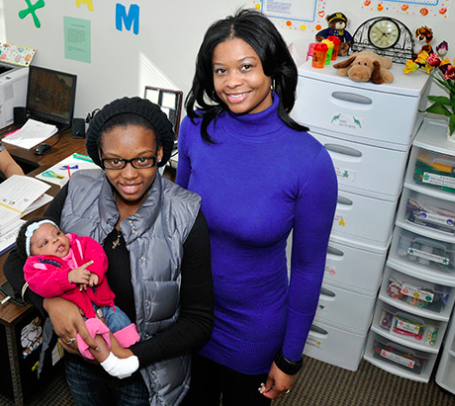What kind of impact does social mentoring have on vulnerable groups?
Prieto-Flores, Ò. & Feu Gelis, J. (2018). What type of impact could social mentoring programs have? An exploration of the existing assessments and a proposal of an analytical framework. Pedagogía Social. Revista Interuniversitaria, 31, 149-162.
https://doi.org/10.7179/PSRI_2018.31.12
Summarized by Ariel Ervin
Notes of Interest:
- Researchers have increasingly become interested in studying the impact mentoring has on the social inclusion of underrepresented groups.
- However, the current literature on social mentoring is limited. Apart from the fact that the scholarship on this subject isn’t extensive, studies tend to stem from one discipline and primarily focus on young people.
- This paper proposes a general definition of social mentoring and reviews the current literature (1997 – 2018) to better understand social mentoring and its impact on marginalized youth who are at-risk for social exclusion.
- It also introduces an analytical framework that can help researchers discern the contexts and orientations where social mentoring programs develop.
- The proposed framework indicates that social mentoring programs can exist in neo-liberal contexts, as well as social-democratic political contexts.
Introduction (Reprinted from the Abstract)
This study carries out a review of the existing scientific literature in the field of social mentoring and its effects on youth at risk of social exclusion as well as on other vulnerable groups. We start by presenting the range of programs evaluated and the different ways these evaluations have been approached. An analytical framework is also presented to delve into the study of the orientation and socio-political context of social mentoring, as well as a definition of the concept in accordance with emerging new social realities. To conclude, we emphasize the need for a wider range of research and evaluation that can better inform about the practice of social mentoring programs that are emerging in Spain, Europe, and Latin America.
Implications (Reprinted from Conclusions)
There are many scientific studies that highlight the role of non-family adults (neighbors, monitors, teachers or others) in social inclusion and well-being in the most vulnerable groups (DuBois & Silverthorn, 2005; Sánchez, Esparza & Colón, 2008, Portes, Aparicio & Haller, 2016). In order to foster this type of relationship, social mentoring programs seeking to promote these relationships in the community have emerged strongly in recent years. This growth is accompanied by the need for third sector organizations and the public administration to better articulate existing volunteerism in our societies. The growing presence of these programs has also been accompanied by a significant increase in the amount of research that attempts to explain social mentoring relationships and how these programs can become more effective. However, the existing research is not very extensive and has been carried out generally from only one discipline of knowledge and focuses only on the case of young people. Interdisciplinary work is needed to address the many knowledge gaps that still exist in the field, as well as new analytical frameworks that help us to better understand the processes of social mentoring and the context in which they are implemented. This paper attempts to contribute to filling this gap by providing an analytical framework that can help to critically identify the orientation and socio-political context in which they develop. This analytical framework allows us to identify how social mentoring programs are not only possible in the neoliberal contexts in which they were born, but can also be developed in social-democratic political contexts from a differentiated perspective, emphasizing the empowerment of the most vulnerable groups, not only young people, thus being a formula culturally closer to several European and Latin American countries.
To access this article, click here.










